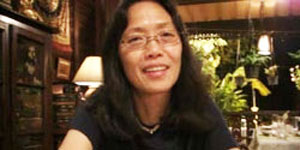On January 13, 2012, the Burmese government did an unthinkable act by releasing a large group of political opponents from its malevolent, neo-colonial prison system. If it was a sincere gesture, it indeed may mark the end of five decades of military rule that began in 1962, when the public broadcasting station was stormed, peaceful student protestors were shot and the student union building was demolished. The government’s courage to take such a gamble after decades of entrenched military rule, is commendable.
 Prolonged conflicts and poverty in Burma have not only devastated the People, it has also left the once highly regarded Burmese military in the rubble of history. Real soldiers can now see that ruling Burma by arms is not only wrong, but it is also not feasible. In addition, the economic sanctions led by the United States may have been the last straw that forced the hands of the junta. Or it may simply be that, the military has run its course and the generals now only want a guarantee to preserve their wealth and prestige. No one knows for sure what took place behind the opaque walls of the military junta. But it is more important not to be blind to what can be seen in front of everyone.
Prolonged conflicts and poverty in Burma have not only devastated the People, it has also left the once highly regarded Burmese military in the rubble of history. Real soldiers can now see that ruling Burma by arms is not only wrong, but it is also not feasible. In addition, the economic sanctions led by the United States may have been the last straw that forced the hands of the junta. Or it may simply be that, the military has run its course and the generals now only want a guarantee to preserve their wealth and prestige. No one knows for sure what took place behind the opaque walls of the military junta. But it is more important not to be blind to what can be seen in front of everyone.
The problem with the semi-authoritarian Parliament in Naypyitaw, at the moment, is that its nugatory moral authority and questionable political credibility to overcome the doubts and challenges of the political and armed opposition in Burma. But the biggest mistake for the opposition is to abandon the process entirely to the whimsical military without a clear alternative strategy. Which is probably why Aung San Suu Kyi decided to participate in the April 1st by election.
It is still too soon to know if Burma can be held up as the example of an authoritarian state’s graceful exit. But it can safely be assumed that the Burmese generals are trying to avoid Libya’s fate.
After World War II, the military in Burma came to dominate the villages and control the ministries and the police force. Burma’s army appropriated more and more of the country’s diminished wealth; and benefited from the perception that it was a threatened country in the midst of an armed camp, with Chinese, the rump of the British Empire or even India greedily surveying the remains of its assets of oil, timber and rice.
Recently, Burma had all but become one of the first failed states. But the greatest tragedy has been when the Americans and other Western democracies more or less continued their same policies even after the bloody 1988 uprising in Burma, and engaged in business as usual with the SLORC/SPDC military junta, except for halfhearted and ineffectual economic sanctions. But in the aftermath of 2007 Saffron Revolution, Americans and other western countries became the most visible supporters for the Burmese democracy movement.
The perception of “civil and political rights,” for Americans and other free societies, may be no more than a tool, or political currency to pressure unsavory regimes around the world. But for every Burmese, including soldiers, they are a question of life and death at this juncture in Naypyitaw’s politics. The necessary preconditions for a democratic self-government by the people of a free state is, “a broad understanding of arms.” There can be no democracy unless there is a precondition for democratic self-government, to control the armed forces.
The unparalleled success of American democracy rested on one single most important lesson of placing the standing army under the control of the civilian parliamentary government. It was without a doubt that Americans could not have dreamed of unalienable rights to life, liberty and the pursuit of happiness if they had surrendered the civilian control of the peacetime army. Which unfortunately, was what took place in Burma since the 1948 Independence – granting a handful of armed men in uniforms the power to kill and to reap the riches of Burma.
Until this can be altered, until the people are given the power through the Burmese Constitution to protect their families, their lives and their possessions from the violence of armed forces, the ship for democracy has not yet sailed for Burma.
January 13th may still be the finest moment in the darkest chapter of Burma. The courage to let it happen and the courage to reconcile – has been breathtaking. But we can’t turn our backs to the task at hand.
No one knows yet whether true freedom is near. To change Burma, Aung San Suu Kyi said that, the people themselves will have to take the initiatives. And maybe this time they might, even after the April fool’s day.



